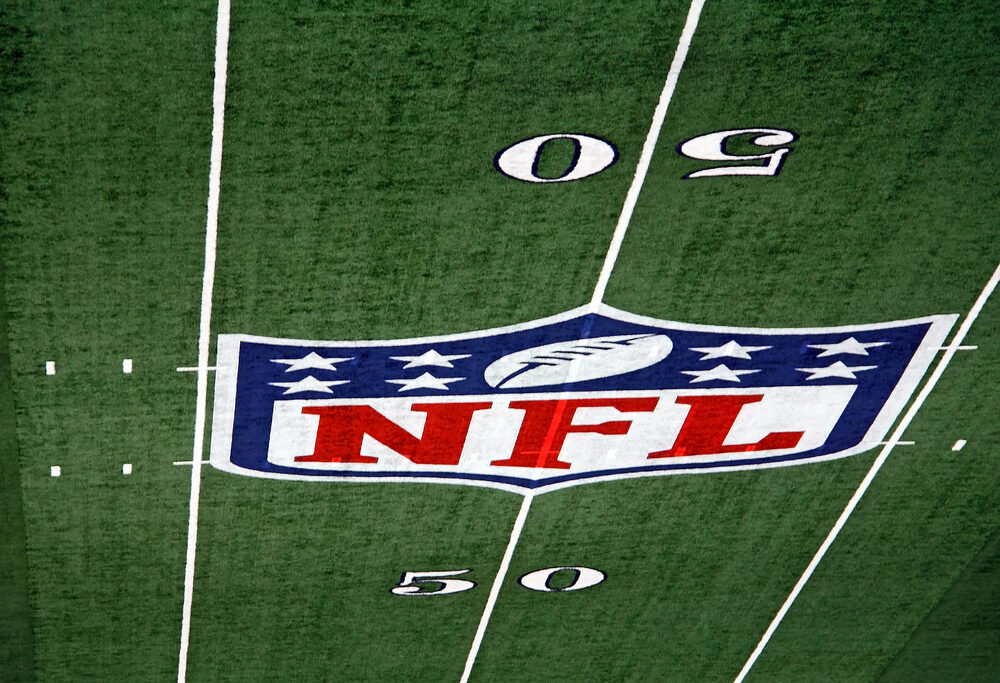A landmark settlement intended to compensate NFL players for brain injuries sustained on the field is falling short of expectations, according to an in-depth investigation by The Washington Post.
The 2015 settlement ostensibly resolved the league’s “concussion crisis,” pledging substantial awards for retired players who develop neurological diseases linked to concussions later in life. Awards would cover medical expenses, long-term healthcare, and present or future lost wages. Qualifying conditions include dementia, Alzheimer’s and Parkinson’s disease, ALS, and chronic traumatic encephalopathy (CTE).
Former Atlanta Falcons safety Ray Easterling, who developed CTE after multiple concussions, was the first to file a lawsuit in 2011, inspiring more than 5,000 others to do the same. The lawsuits were consolidated into multidistrict litigation in the U.S. District Court for the Eastern District of Pennsylvania.
Easterling committed suicide before the original settlement, originally set at $765 million, was finalized in 2013.
Under the terms of the final settlement two years later, the NFL admitted no wrongdoing, and players who opted in forfeited their right to future legal action. This also shielded the NFL from having to explain potentially damning internal documents and testimony showing that Commissioner Roger Goodell and other officials knew of the link between football and brain injury.
Since then, the NFL has awarded more than 1,600 players with $1.2 billion. The agreement is valid through 2080 and is estimated to cost the league $900 billion in total, covering approximately 25,000 players. Players do not have to prove their injuries were directly related to football.
NFL Settlement Investigation
The Post’s investigation found the league has been rejecting payouts to hundreds of eligible players suffering from dementia, some of whom have since passed away from that condition. Reporter Will Hobson’s research discovered that approximately 85 percent of the claims filed by more than 1,200 retirees diagnosed with dementia were denied.
Hobson attributes this to the settlement’s far more stringent definition of dementia, which he found made it more difficult for players with that condition to qualify for a payout.
"The settlement's definition for dementia requires more impairment than the standard definition used in the United States," he wrote. "Several doctors who have evaluated players told The Post that if they used the settlement's definition in regular care, they would routinely fail to diagnose dementia in ailing patients."
The settlement used the standard definition for all other qualifying conditions, including Alzheimer’s, Parkinson’s, and ALS.
And while the NFL agreed that players suffering from CTE would qualify once they developed signs of dementia, The Post confirmed that 14 players whose cause of death was confirmed as CTE were denied. Eight were still alive when diagnosed by NFL-funded physicians with Alzheimer’s, dementia, or another memory disorder.
Some of those physicians diagnosed dementia but attributed symptoms to other health issues linked to football-related concussions, like sleep apnea and depression.
The NFL promised in the settlement that their physicians would see players for free and expedite their qualifying dementia records. But the average wait for a visit is 15 months, and The Post confirmed that two players passed away while waiting on approval paperwork.
Another widespread concern raised by plaintiffs is the use of “race-norming,” which assumes that Black players, who make up more than half of the NFL, have lower baseline cognitive function than their white counterparts. Two Black players sued the NFL in 2020 for improperly using the practice – originally designed to help dementia patients receive more personalized treatment – as part of qualifying criteria for the settlement.
The use of race-norming in this case meant that Black claimants had to demonstrate more severe impairment than white players to receive a payout.
Senior U.S. District Judge Anita Brody, who is overseeing the settlement, threw out the civil rights lawsuit from 2020. But after medical experts expressed concern and a group of players’ families took 50,000 petitions to Philadelphia’s federal courthouse, she asked for a report on the matter.
The NFL responded in June 2021 by pledging to stop the use of race-norming, review past denied claims for racial bias, and form a new payout review committee including Black neuropsychologists. However, they continued to appeal some claims from Black players whose scores were not retroactively adjusted for race.
Head Injuries in the NFL
The NFL’s excessive head injury rate and failure to protect its players has been a controversial topic for years. It was especially in the spotlight after Miami Dolphins’ star quarterback, Tua Tagovailoa, suffered two confirmed concussions in four days during the 2022 season. He was allowed to return to play just moments after his first concussion in a game against the Buffalo Bills and sustained the second a few days later while playing the Cincinnati Bengals.
After widespread uproar, the NFL dismissed the sideline physician who had evaluated Tagovailoa during the Bills game and strengthened the league’s “concussion protocol” to include additional symptoms that would bench a player.
In total, more than 135 players sustained concussions during the 2022-23 season.
The NFL now requires that any player diagnosed with a concussion be benched for that game and pass a thorough five-step evaluation before playing again. While the league has taken steps to protect players going forward, whether justice will be served for the injured retirees involved in the brain injury settlement remains to be seen.










